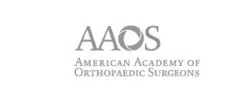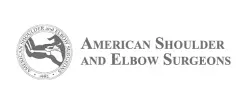While shoulder replacement is not as common as hip and knee replacement, its prevalence has more than doubled in the past 2 decades. This is due not only to the aging population but also to the growing popularity of the reverse shoulder replacement which has a host of indications including rotator cuff tears. As demand for shoulder replacement rises, it is increasingly important to understand complications, failure mechanisms, durability and the impact of design on shoulder mechanics.
Dr. Parsons has been intimately involved in research on shoulder replacement through his work with Exactech, Inc (Gainesville, FL), a shoulder replacement implant supplier that has an international, multicenter database of outcomes. With thousands of patients and tens of thousands of pre- and postoperative visits, this database can provide a wealth of information through clinical research and data analysis. Parsons has been part of a project applying machine learning data science tools to this outcomes database to better understand what information can be clinically useful to surgeons and patients.
This work recently led to the publication of a research article entitled, “Risk Factors for Complications and Revision Surgery after Anatomic and Reverse Total Shoulder Arthroplasty.” Parsons was part of a team of surgeons, engineers and data scientists that contributed to this work. This article was accepted for publication in the Journal of Shoulder and Elbow Surgery, which is a prestigious, peer-reviewed journal published by the American Shoulder and Elbow Surgeons. Acceptance in this journal indicates the quality and value of this research in terms of its potential clinical impact.














